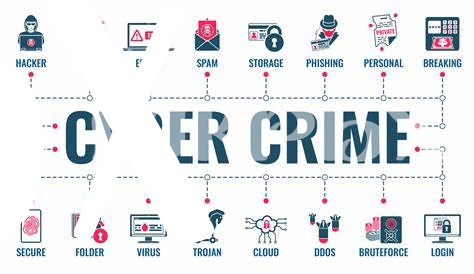🌐 What Is Bitcoin and How It Works

Imagine a form of money that’s not a paper bill in your wallet or a coin jingling in your pocket, but digital. Bitcoin, the first cryptocurrency, is kind of like invisible money you can send or receive over the internet. It’s created using complex computer processes, known as mining, which involve solving tricky puzzles. Unlike traditional money, it doesn’t rely on banks or governments. Instead, it works on a technology called blockchain, a super secure, online ledger that records all transactions. This means that when you send Bitcoin to someone, the transaction is recorded on a public list, ensuring it’s safe and can’t be tampered with. Here’s a little table to break it down:
| Feature | Description |
|---|---|
| Digital Nature | Exists entirely online, not physical |
| Blockchain Technology | Secures transactions on a public ledger |
| Mining | The process of creating Bitcoins and validating transactions |
| Decentralization | Operates independently of central banks/governments |
This innovation opened a new world of possibilities, moving beyond traditional money, and sparked a revolution in digital payments.
💡 the Rise of Cryptocurrency in Digital Age
In the tapestry of the digital era, a blend of curiosity and innovation painted the birth of Bitcoin, unraveling a new chapter in the financial world. Pioneering the entrance of cryptocurrencies, Bitcoin emerged not just as a novel asset but as a symbol of autonomy away from traditional banking. Its decentralized nature, where transactions occur directly between users without an intermediary, caught the wind of change, inviting a spectrum of digital currencies into the daylight. As more people started to lean into the allure of borderless and private transactions, the digital age witnessed an unprecedented embrace of cryptocurrency, challenging the very fabric of conventional financial systems. Amidst this digital renaissance, understanding the nuances of trading and investing in cryptocurrencies became paramount for enthusiasts looking to navigate this new financial landscape. For those eager to deepen their understanding and maximize their portfolio, a wealth of information awaits at https://wikicrypto.news/bitcoin-vs-central-banks-the-battle-for-financial-freedom, where insights into strategic trading can carve paths to financial freedom.
🚨 Crypto-scams: Spotting the Red Flags

Imagine you’re walking down a digital street, and suddenly, someone offers you a magic coin that can grow into many more if you just give them one of yours. Sounds tempting, right? But wait, this is where understanding the signs of trouble, or “red flags,” becomes crucial. Just like in the real world, not every offer in the digital world, especially in the realm of Bitcoin and other cryptocurrencies, is as good as it sounds. Some of these offers can be tricks, known as crypto-scams, designed to take your coins away without giving anything back.
So, how can you spot these sneaky tricks? First, if something looks too good to be true, like promises of fast, guaranteed profits, take a step back. 🛑 No investment can guarantee quick money without risks. Next, watch out for anyone rushing you to make a decision, saying things like, “Act now before it’s too late!” 🕒 Trustworthy deals give you time to think. Finally, keep an eye out for strangers reaching out with special investment tips or deals. 💌 Real investment opportunities don’t usually come from a surprise email or message from someone you don’t know. By knowing these signs, you’re better equipped to walk safely through the exciting but sometimes risky streets of the cryptocurrency world.
📧 from Ransomware to Phishing: Types of Crypto-scams

In the digital jungle of today’s currency world, not all that glitters is gold, especially when it comes to the tricky terrain of crypto-scams. Imagine getting an email that looks like it’s from a big company you trust, but it’s actually a trap called phishing. Or, your computer gets locked, and you can’t access your files until you pay up in anonymous digital cash—welcome to the world of ransomware. These are just the tip of the cyber-iceberg. There are sneaky schemes where people pretend to be in love online just to get your digital cash, and apps that look helpful but are actually spying on your digital wallet. The good news? By understanding how these scams work, you’re better armed to dodge them. Even seasoned investors can find themselves caught off-guard, which is why it’s crucial to stay informed. Speaking of staying ahead, learning about bitcoin futures trading explained can offer insights into the broader landscape of cryptocurrency and its future directions. Remember, in the rapidly evolving world of digital currency, knowledge is more than just power—it’s protection.
🛡️ Staying Safe: Tips to Avoid Being Scammed
Navigating the digital world cautiously is crucial, especially when it involves your hard-earned money. Imagine stepping into a bustling city street; you’d watch where you’re going and keep your wallet safe, right? The online world is not much different. A golden rule is never sharing your personal keys (think of them as ultra-secret passwords) with anyone. Just like you wouldn’t hand over your house keys to a stranger, guarding these keys keeps your digital treasure chest safe. Remember, genuine companies will never ask for these secret codes.
Falling for a scam might feel like a shadow creeping up unnoticed. However, some light can be shed by being eagle-eyed for warning signs. 🕵️♂️ Here’s a simple table to help you stay sharp:
| Red Flag | What It Means |
|---|---|
| Unsolicited offers | If someone reaches out with an offer out of the blue, especially if it seems too good to be true, it’s a bright red flag. |
| Pressure to act quickly | Scammers often try to rush you, saying it’s a “limited-time offer.” Take your time to think and research. |
| Requests for personal keys | As mentioned, your keys are for your eyes only. Sharing them can lead to loss of your digital currency. |
By embracing cautious optimism and being well-informed, you can enjoy the vast potential of digital currency while steering clear of the pitfalls along the way. Remember, in a world that’s constantly changing, knowledge and a bit of vigilance are your best allies.🛡️🔍
💬 Reporting & Recovery: What If You’re a Victim?

Finding yourself in the grip of a crypto-scam can feel like being lost in a dark maze with no clear exit. The first and most crucial step is not to panic. Reporting the incident can help you find guidance through this labyrinth. Contacting your local cybercrime authorities should be your initial move as they have the expertise and tools to tackle these digital thieves. There’s also strength in numbers; by sharing your experience on social forums and with the bitcoin community projects explained, you’re likely to encounter others who have navigated through similar troubles. These platforms not only provide moral support but can also offer practical advice on your next steps.
Recovery, though challenging, is not always a lost cause. While retrieving lost funds can be tricky, certain measures can improve your chances. Starting with informing your bank or crypto-wallet provider about the scam as soon as possible is key. They can guide you through their specific recovery process, potentially freezing or recalling any unauthorized transactions. Remember, in the digital age, your cybersecurity hygiene is your fortress. Regularly updating your passwords, enabling two-factor authentication on your accounts, and staying informed about the latest scam techniques greatly diminish your odds of falling victim again. Keeping these tips in mind can not only help in recovery but also fortify your defenses against future scams.
